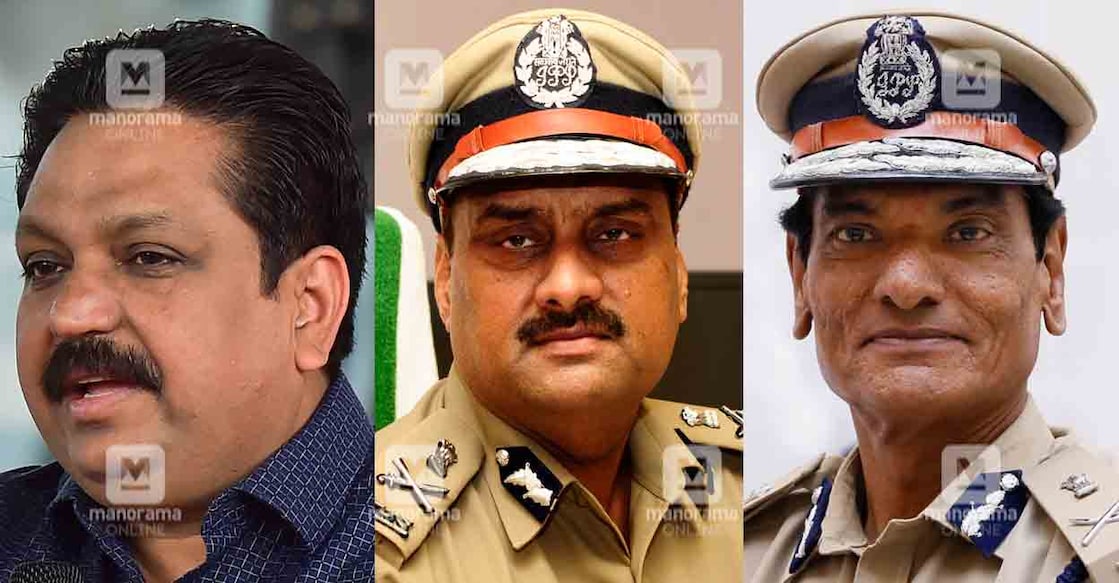Police chief Anil Kant beneficiary of Thachankary, Sudhesh mud-slinging to grab top post

Mail This Article
Thiruvananthapuram: The decision to extend the service of Anil Kant as the State Police Chief and DGP (Law and Order) for another two years was quite an unexpected move from the Kerala Government.
The running feud between two DGP-level officers Tomin J Thachankary and Sudhesh Kumar with the aim of grabbing the coveted post of the State Police Chief has forced Chief Minister Pinarayi Vijayan to take an early decision on extending the service of Anil Kant for another two years.
The extension order, which is supposed to be issued next January, was issued two months early, taking into account the headache involved in picking either of them to the post. A recent verdict of the Supreme Court also emboldened the government to allow Anil Kant to continue as the State Police Chief.
Last time too, Anil Kant became the successor of ex-DGP Loknath Behara quite surprisingly. The list sent by the State Government to the Union Public Service Commission (UPSC) three months before the retirement of Behara contained the names of four senior IPS officers in the rank of DGP such as Arun Kumar Sinha, Tomin Thachankary, Sudesh Kumar and B Sandhya.
With Arun Kumar Sinha opting out, there were three nominees left in the list. But by that time, the cases and allegations against Sudhesh and Thachankary reached the Union Home Ministry and the UPSC. This was done ostensibly by those supporting the two DGPs. The Central Government then conducted an inquiry through the Intelligence Bureau. Finally, when the Central Government released the panel of probable candidates, Sudhesh's name was on the top of the list followed by Sandhya and Anil Kant. The State Government then picked Anil Kant, who had only seven months to retire from service, from among the list of three IAS officers.
Though there was speculation that Sandhya would become the first woman State Police Chief, she was not considered as her handling of certain cases did not find favour with the State Government.
Thachankari and Sudhesh Kumar began spadework this time too for grabbing the post after Anil Kant's retirement in January. Both of them indulged in mutual mud-slinging. Again, the allegations and cases against both of them reached the UPSC office. The copies of such complaints against each other written in others' names also reached the office of the Chief Minister.
The CPM leadership then intervened and asked the government to be cautious as this would later become a headache for the government.
The Chief Minister's office swung into action and asked Anil Kant whether he would agree to the Supreme Court's insistence that once getting extension after retirement the State Police Chief must continue in the post for two years. Once Anil Kant agreed to the proposal, the matter was brought to the State Cabinet on Wednesday as an out of agenda item and was cleared.
State police chiefs' service extended in 5 more states
In Prakash Singh case, the Supreme Court in 2018 and 2019 had insisted on giving two years' minimum tenure for the State Police Chief. Another stipulation was that only an IPS officer having a minimum six months' tenure left in service must be considered for the post of the State Police Chief.
The Supreme Court had also said that the incumbent DGP should be allowed to continue his two years' term even if he retired in between. If he is shown the door as part of any disciplinary action, the court should be convinced of the matter. Otherwise, the incumbent State Police Chief should give a letter that he was not interested in continuing in the post.
Based on the directive of the Supreme Court, the State Police Chiefs of Tamil Nadu, Haryana, Rajasthan, Uttar Pradesh and Himachal Pradesh have been given two years' extension recently.

